Countdown to Liberal convention .. can Kennedy-Dion beat Bob Rae (and Michael Ignatieff)?
Nov 17th, 2006 | By Counterweights Editors | Category: Key Current Issues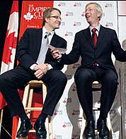 It is not surprising that some of the same minds who think Michael Ignatieff will make an excellent leader of the Liberal Party of Canada also think that Governor Howard Dean, will be an excellent person to “give the keynote address at the Party’s upcoming Leadership and Biennial Convention” in Montreal, Tuesday, November 28 Saturday, December 2. In this case they may be right. Governor Dean’s address, “on … November 29 … 8:20 pm (EST),” will confirm that the true Grits have their own pathways to the elephant next door. Meanwhile, we’re putting our money on either Bob Rae or Gerard Kennedy in the Liberal leadership race. There’s still a lot of mystery here. But is it grabbing the Canadian people? Some say no. Some say maybe. Some say Quebec is a nation. And some say a very old-school Kennedy-Dion alliance could win both the West and Justin Trudeau. (But can that even possibly be true?)
It is not surprising that some of the same minds who think Michael Ignatieff will make an excellent leader of the Liberal Party of Canada also think that Governor Howard Dean, will be an excellent person to “give the keynote address at the Party’s upcoming Leadership and Biennial Convention” in Montreal, Tuesday, November 28 Saturday, December 2. In this case they may be right. Governor Dean’s address, “on … November 29 … 8:20 pm (EST),” will confirm that the true Grits have their own pathways to the elephant next door. Meanwhile, we’re putting our money on either Bob Rae or Gerard Kennedy in the Liberal leadership race. There’s still a lot of mystery here. But is it grabbing the Canadian people? Some say no. Some say maybe. Some say Quebec is a nation. And some say a very old-school Kennedy-Dion alliance could win both the West and Justin Trudeau. (But can that even possibly be true?)
Does it really matter anyway?
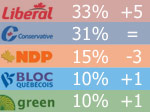 One theory doing the rounds at the moment appears fairly convincing to the counterweights editors, for the moment at least.
One theory doing the rounds at the moment appears fairly convincing to the counterweights editors, for the moment at least.
This urges that, from the broadest progressive view, all the Liberal Party of Canada has to do in the next federal election (along with the New Democrats and the Bloc Quebecois and even Ms. May’s [and Mr. Turner’s?] Green Party) is make sure that Stephen Harper’s new Conservative Party of Canada does not win a majority in Parliament.
To make a potentially longer story very short, recent opinion polls suggest that the Liberals (etc) could pretty confidently do at least that right now – even without any new permanent leader. (And/or, someone should probably say, Bill Graham is doing a not-too-bad job as interim leader.)
On the latest Decima poll the Grits are actually a bit ahead of the new Tories. So, you can reasonably enough believe, it probably doesn’t make too much difference just who finally wins what seems bound to be something of a crown of thorns on December 2 in Montreal.
What is the most radical theory of why it doesn’t matter?
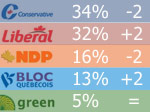 To take quick note of the perhaps most important longer part of the story, on the most radical version of the argument it could even be best for Canada (and the federal Liberals themselves) if the next election were to bring another Stephen Harper minority government.
To take quick note of the perhaps most important longer part of the story, on the most radical version of the argument it could even be best for Canada (and the federal Liberals themselves) if the next election were to bring another Stephen Harper minority government.
Perhaps an even more slender minority than at present would be the very best thing. (Say, 117 Conservative seats to 110 for the Liberals, with everything else the same as in 2006.) But a continuation of Mr. Harper’s present Conservative minority government at any rate.
The key what’s-best-for-Canada prop for this most radical version of the argument is probably that the West, which the Harper government has just brought in to the corridors of power in Ottawa at last, has not been there quite long enough to be turfed out just yet.
And this will be especially true if the next election comes as early as some time next year, as some people still seem to think – or even as early as some time in 2008, as others now predict.
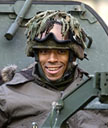 Another slim minority government will also, e.g., give Mr. Harper time to move ahead on his step-by-step Senate reform plot, which arguably constitutes the most constructive Canadian nation-building activity of his brief stint in office so far. Then there’s the point that so long as George W. Bush is still going to be US president for the next two years, there might as well be someone he thinks he can get along with sitting in the high chair in Ottawa.
Another slim minority government will also, e.g., give Mr. Harper time to move ahead on his step-by-step Senate reform plot, which arguably constitutes the most constructive Canadian nation-building activity of his brief stint in office so far. Then there’s the point that so long as George W. Bush is still going to be US president for the next two years, there might as well be someone he thinks he can get along with sitting in the high chair in Ottawa.
And then there is, again, the companion argument that the Liberals, whoever winds up trying to lead them, will need a bit longer time in pasture yet, to prepare for their next big part in the story of Canada.
Historians could think of the early 1960s, when Lester Pearson had to lose a minority government to John Diefenbaker, before winning his own fresh minority government a short while later, and going on to give Canada its own flag at last, build the new federal service state, and set the stage for Pierre Trudeau.
(And, by the way, if you really think this more-time-in-the-pasture argument is deeply convincing, Gerard Kennedy in partnership with Stephane Dion – as some kind of updated variation on the old-school theme of the Quebec lieutenant – could finally be your man too.)
AND NOW, IN CASE YOU THINK THE LIBERAL CONVENTION IN MONTREAL IS ACTUALLY IMPORTANT, OR AT LEAST INTERESTING, AND ARE UP FOR AN AWFUL LOT MORE … SKIM ON AT YOUR OWN PERIL … OR CHECK OUT OUR CONVENTION DAY ROLLING REPORT…
[And we obviously must think it’s at least interesting to have written quite this much]
1. The initial big numbers
 You can also argue of course that even if it doesn’t really matter, the ultimate leader the Liberals will choose on Saturday, December 2 has at least become a bit of an interesting political question – especially in the stodgy old halls of anglophone Central Canada, and maybe, a little, some parts of stodgy old francophone Central Canada, with intermittent attention in BC, the Prairies, and Atlantic Canada (and Aboriginal Canada and the very far North)?
You can also argue of course that even if it doesn’t really matter, the ultimate leader the Liberals will choose on Saturday, December 2 has at least become a bit of an interesting political question – especially in the stodgy old halls of anglophone Central Canada, and maybe, a little, some parts of stodgy old francophone Central Canada, with intermittent attention in BC, the Prairies, and Atlantic Canada (and Aboriginal Canada and the very far North)?
So … on the current official delegate count (as of November 7: there is still apparently a bit of uncertainty in BC, but not so dramatic as to alter the fundamentals), Michael Ignatieff is the clear front runner, with 30.2% of all committed votes on the first ballot in Montreal on December 2.
This is nowhere close to the majority he will need to win. And there are three other candidates whose current first-ballot numbers give them a plausible shot at the prize – once the first ballot is over, and all the delegates are free to get down to the serious horse trading that will determine just who emerges triumphant in the end. (In descending order of first-ballot delegate commitments, their names are: Bob Rae, Gerard Kennedy, and Stephane Dion.)
 Just to add to the confusion, there are an additional four candidates still in the race – who collectively command some 13.6% of committed first-ballot delegates, and an additional 2.5% of delegates who are committed to no one.
Just to add to the confusion, there are an additional four candidates still in the race – who collectively command some 13.6% of committed first-ballot delegates, and an additional 2.5% of delegates who are committed to no one.
With a starting field of eight, half of whom have good enough first-ballot numbers to win, and the other half of whom have at least more than 10% on the first ballot combined, the winner may not be finally known until after quite a few ballots, on which the bottom person from the last ballot drops out etc. Who knows? It may even go on into the morning of Saturday, December 3? (Which coincidentally just happens to be the 92nd birthday of Bob Rae’s mother, who is hoping for a nice present.)
2. Has Iggy popped out already?
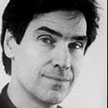 The first question in the midst of all the confusion of course is can current front runner Michael Ignatieff build on his first ballot lead in all the subsequent ballots, and emerge the winner in the end? And at this stage the general drift in the media and among most of the well-informed observers with whom the counterweights editors consort is probably or even almost certainly not.
The first question in the midst of all the confusion of course is can current front runner Michael Ignatieff build on his first ballot lead in all the subsequent ballots, and emerge the winner in the end? And at this stage the general drift in the media and among most of the well-informed observers with whom the counterweights editors consort is probably or even almost certainly not.
(Though remember, this is Canadian politics. It is still not altogether inconceivable that the Liberal Party in its current incarnation is just a dumb political machine, as alluded to below, and Michael Ignatieff finally will win. But certainly don’t bet on it is the current smart talk.)
We think ourselves that Mr. Ignatieff should ultimately be given credit for making the 2006 federal Liberal leadership race a more interesting extended public event – and even for raising some issues that ought to be raised, but that those who have spent more of their adult lives in Canada than Mr. Ignatieff too often try to evade, for bad as well as good reasons.
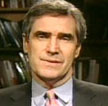 But, with the testing of a long campaign that is now almost over, there does seem a growing awareness that even a very brilliant Canadian-born academic – with an impressive career as a public intellectual in both the United Kingdom and the United States, but hardly any experience at all as an elected politician or any other kind of public servant – will not really make a killer new leader of the Liberal Party, to say nothing of Prime Minister of Canada.
But, with the testing of a long campaign that is now almost over, there does seem a growing awareness that even a very brilliant Canadian-born academic – with an impressive career as a public intellectual in both the United Kingdom and the United States, but hardly any experience at all as an elected politician or any other kind of public servant – will not really make a killer new leader of the Liberal Party, to say nothing of Prime Minister of Canada.
The notion that “Iggy” could revive the Liberal heroic age under the great Canadian public intellectual Pierre Trudeau was, from the start, a very mechanistic and too-clever-by-half concept. Only people who have inquired into and understand very little of the real Trudeau (or the real Iggy) could be altogether persuaded. (And, no doubt some would say, only people who still do see the federal Liberal Party as just the most historic and most successful dumb Canadian political machine, attached to advertising agencies and not much more.)
Still more crucially, others will say, even if Iggy were any kind of semi-serious anglophone clone of Pierre Trudeau, this is 2006 not 1968. Or, as a recent headline in the Victoria Times-Colonist has urged: “Liberal leadership race going nowhere … Party’s search for renewal looks more like nostalgia for the Trudeau era.”
3. Bob Rae as the prince of tides?
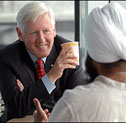 It is often said that the consensus the mass media finally arrive at in these matters can be very important. And if you’ve been around watching things for any length of time, this does make a certain amount of sense. If it is very, very true for the Canadian Liberal leadership race of 2006, Bob Rae’s mother just may get the birthday present she is hoping for on December 3.
It is often said that the consensus the mass media finally arrive at in these matters can be very important. And if you’ve been around watching things for any length of time, this does make a certain amount of sense. If it is very, very true for the Canadian Liberal leadership race of 2006, Bob Rae’s mother just may get the birthday present she is hoping for on December 3.
In Southern Ontario at least there has been a growing Bob Rae media tide over the past several weeks or longer. And this has been growing despite all his obvious baggage, as the leader of Ontario’s surprising first New Democratic Party provincial government in the troubled first half of the 1990s. (Which is still widely seen as the vast progressive disaster that set the stage for Mike Harris’s Ontario neo-con Common Sense Revolution, 19952003.)
As matters stand, Rae is a strong enough second to Ignatieff, with 20.3% of committed first-ballot delegates. And once you accept that Ignatieff is just not going to fly, there certainly are some arguments for Bob Rae.
His big problem in Ontario, e.g., was that he had the stodgily ideological NDP around his neck. But now he’s left them for the Liberals, where his brother has been from the start. And yet he probably will still somewhat defang the NDP as a Liberal rival if he becomes Liberal leader.
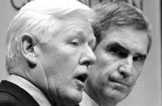 He is almost as smart as Iggy, with whom he has actually been personal friends since their shared youth as sons of Canadian diplomats, in the golden age of Lester Pearson and the early United Nations, etc. If the final ballot at the convention is a contest between Ignatieff and Rae, mano a mano, there will be some nice human soap opera to that too.
He is almost as smart as Iggy, with whom he has actually been personal friends since their shared youth as sons of Canadian diplomats, in the golden age of Lester Pearson and the early United Nations, etc. If the final ballot at the convention is a contest between Ignatieff and Rae, mano a mano, there will be some nice human soap opera to that too.
And if it is more or less true that Iggy is the candidate of the Martinite Liberal establishment and Rae of the Chretienite Liberal establishment, as some say, it’s now clear that Chretien had the much longer track record in office. Chretien was a success. Paul Martin was not, etc, etc.
4. The Convention theme – “Choices that Count”?
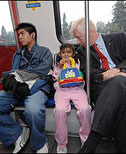 The recently announced theme of the imminent Montreal convention – Choices that Count’ – almost seems to fit the kind of campaign Bob Rae might run against Stephen Harper. (Which will make some wonder: has even the Martinite establishment started to change its mind?)
The recently announced theme of the imminent Montreal convention – Choices that Count’ – almost seems to fit the kind of campaign Bob Rae might run against Stephen Harper. (Which will make some wonder: has even the Martinite establishment started to change its mind?)
Mr. Rae may be a bit boring, and he is certainly too much a native son of old anglophone Central Canada. But his NDP background may give him some traction in BC (and Saskatchewan and Manitoba). He speaks very good French, and seems known and respected in Quebec. The social democrats of all parties in Atlantic Canada can at least trust him with their regional fate.
He has connections with one of Toronto’s noted Red Tory law firms. He clearly stands for the kind of liberal values that Stephen Harper is against. But he can be trusted by assorted economic and other establishments not to do anything truly crazy or unsettling. He has a sense of humour. And, as a quite long and grueling campaign winds down, he still really does seem to want the job. (He is at least that crazy.)
 It could be that a betting person would most wisely put most of his or her money on Bob Rae right now. Yet it is still true that, like virtually every other candidate in this somewhat whacky but at least technically interesting race, Bob Rae is far from any perfect solution to the problems of either the Liberal Party of Canada or Canada itself at the moment.
It could be that a betting person would most wisely put most of his or her money on Bob Rae right now. Yet it is still true that, like virtually every other candidate in this somewhat whacky but at least technically interesting race, Bob Rae is far from any perfect solution to the problems of either the Liberal Party of Canada or Canada itself at the moment.
He is strong on his feet for all the good old liberal causes, but he is also a bit boring. His track record and his speeches strongly suggest that he will not be doing anything bold or inspiring or even very imaginative for his new party or his country.
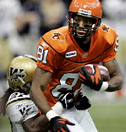 He will stand on guard for the old Central Canadian liberal centrist (or even “progressive conservative”) consensus, that so many other parts of the country seem to have almost terminally lost patience with. (However much they and many in Central Canada too may not much like the new kind of Canadian consensus that Stephen Harper is trying to forge.)
He will stand on guard for the old Central Canadian liberal centrist (or even “progressive conservative”) consensus, that so many other parts of the country seem to have almost terminally lost patience with. (However much they and many in Central Canada too may not much like the new kind of Canadian consensus that Stephen Harper is trying to forge.)
And Bob Rae is also open to almost all the charges implied in the recent Victoria Times-Colonist headline: “Liberal leadership race going nowhere … Party’s search for renewal looks more like nostalgia for the Trudeau era.”
5. Kennedy and Dion as a new dynamic duo …
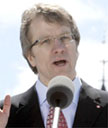 It is at this point that the November 28December 2 conclave in Montreal will reveal what some among us still perversely see as its potentially most intriguing secrets.
It is at this point that the November 28December 2 conclave in Montreal will reveal what some among us still perversely see as its potentially most intriguing secrets.
The other two candidates with a shot at the crown of thorns are Gerard Kennedy, with 17.3% of committed first-ballot delegates (only 3% less than Bob Rae), and Stephane Dion with 16%. And the latest reports from the front lines now have them conniving to ensure that it is one of them, and neither Michael Ignatieff nor Bob Rae, who winds up on top when the last ballot is counted.
Kennedy, just to quickly review, is the former Ontario Liberal education minister, who was born and raised in rural Manitoba, and also spent a few years running a food bank in Edmonton, Alberta. His speeches may be sometimes incomprehensible, but he seems to have a knack for peppering them with slogans that get a rise from the crowd.
More than anyone else, Gerard Kennedy also seems ready to shake things up a bit in the Liberal Party of Canada. There are more than a few teachers and parents in Ontario who really like the way he performed as education minister, even if he was not all that popular among his fellow MPP and cabinet colleagues. His big problem is that, even though his wife is French Canadian, he can barely speak French himself at best.
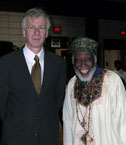 At least on the Kennedy camp’s current calculations, that’s where Stephane Dion comes in. On the Dion camp’s calculations, it is of course the other way around.
At least on the Kennedy camp’s current calculations, that’s where Stephane Dion comes in. On the Dion camp’s calculations, it is of course the other way around.
In any case, M. Dion, to quickly review again, is the former federal Liberal environment minister under Paul Martin, whose father Leon Dion is one of the great public intellectuals of late 20th century Quebec provincial Liberalism. Stephane Dion surprised a lot of people in the earlier parts of the current campaign. And he has proved an impressive spokesman for both the Liberal high ground on the environment, and the continuing reassuring Liberal federalist side of Quebec.
(People who claim to know such things say that Stephane Dion is not really all that popular in his home province of Quebec. But he does manage to get elected there. And his measured intellectual enthusiasm for the ongoing logic of the wider confederation is reassuring elsewhere, even if his perhaps somewhat understandably frustrated father was not that long ago talking about putting a knife to the throat of English Canada.)
6. A “franco-anglo alliance that goes back a very, very long way, all the way back to Confederation”?
 The Central Canadian media mafia, for whatever that may or may not be worth, have for some reason not seemed to like Gerard Kennedy much. For quite a while now they have even tended to picture Stephane Dion as the real third man in the race, behind Ignatieff and Rae. Most recently, however, this seems another bubble that may be starting to burst, a bit like Iggy himself.
The Central Canadian media mafia, for whatever that may or may not be worth, have for some reason not seemed to like Gerard Kennedy much. For quite a while now they have even tended to picture Stephane Dion as the real third man in the race, behind Ignatieff and Rae. Most recently, however, this seems another bubble that may be starting to burst, a bit like Iggy himself.
The main problem is that at some point even Liberals remember how, ever since Pierre Trudeau succeeded to the office in 1968, the prime minister of Canada has almost always been someone from Quebec (even if it was a flawlessly bilingual Quebec anglophone like Brian Mulroney).
Stephen Harper is a change, as very briefly were Joe Clark, John Turner, and Kim Campbell. Some Quebecois even assert that Paul Martin was really a Franco-Ontarian, even if he always sat for a riding in Montreal. On the very bottom line, however, the late 20th century convention that the prime minister of Canada must usually be someone from Quebec is now just another battered old tradition at the end of its rope.
 The ultimate wrinkle in any case, perhaps, is that Stephane Dion seems to have made pretty clear noises about just how committed he is to the Liberal Team Canada, regardless of where his leadership prospects finally land on December 2. And from here you can deduce the thesis that Gerard Kennedy will be the next leader of the Liberal Party of Canada, with a final nice helping hand from Stephane Dion, who will be sticking around to collect his reward in another very traditional old Canadian way, that may somehow still survive.
The ultimate wrinkle in any case, perhaps, is that Stephane Dion seems to have made pretty clear noises about just how committed he is to the Liberal Team Canada, regardless of where his leadership prospects finally land on December 2. And from here you can deduce the thesis that Gerard Kennedy will be the next leader of the Liberal Party of Canada, with a final nice helping hand from Stephane Dion, who will be sticking around to collect his reward in another very traditional old Canadian way, that may somehow still survive.
That at least seems to be the alluring prospect floating about a little more than just between the lines of this recent report from the Hill Times in Ottawa:
“Liberal MP Mark Holland (Ajax-Pickering, Ont.), Ontario campaign chair for the Kennedy campaign, said last week that the Kennedy campaign is conducting negotiations with the Dion campaign based on the principle that whichever one of us can stay ahead is the one to go to’ but added that the Kennedy campaign feels that they will be ahead of the Dion campaign …
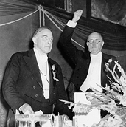 “Mr. Holland said that the negotiations between the two camps started after the super weekend, noting that Mr. Kennedy has done well in delegate support in English Canada while Mr. Dion has won second place in Quebec with 279 or 29 per cent of the delegates. Mr. Kennedy won only 11 delegates or 1.1 per cent support in Quebec.
“Mr. Holland said that the negotiations between the two camps started after the super weekend, noting that Mr. Kennedy has done well in delegate support in English Canada while Mr. Dion has won second place in Quebec with 279 or 29 per cent of the delegates. Mr. Kennedy won only 11 delegates or 1.1 per cent support in Quebec.
“There’s a franco-anglo alliance that goes back a very, very long way, all the way back to Confederation that I think has worked well. Certainly, we see each other building on one another’s strengths in complementing each other well. Utilizing that franco-anglo alliance and given the fact that Gerard is not looking for, to be a team leader, he’s looking to share his leadership with members and with others and so that would be a natural fit.'”
7. Like Mackenzie King and Ernest Lapointe, or even Macdonald-Cartier, Lafontaine-Baldwin, and Mackenzie and Papineau?
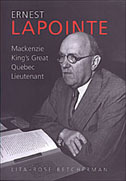 The counterweights editors almost think they believe, at this point, that the most interesting and forward-looking thing the federal Liberals could do in Montreal on December 2 would be to finally elect Gerard Kennedy as their new leader, with Stephane Dion as his clearly enough labeled Quebec lieutenant – in some suitably 21st century update of the grand old tradition of The Incredible Canadian, William Lyon Mackenzie King, and his cherished Quebec lieutenant, Ernest Lapointe, about whom a new history book has recently been published.
The counterweights editors almost think they believe, at this point, that the most interesting and forward-looking thing the federal Liberals could do in Montreal on December 2 would be to finally elect Gerard Kennedy as their new leader, with Stephane Dion as his clearly enough labeled Quebec lieutenant – in some suitably 21st century update of the grand old tradition of The Incredible Canadian, William Lyon Mackenzie King, and his cherished Quebec lieutenant, Ernest Lapointe, about whom a new history book has recently been published.
(And one of the high points of that classic textbook of Canadian Liberalism, The Mackenzie King Record, v. 1, is a photograph of the late November 1941 funeral procession of Ernest Lapointe, along the already snowy old streets of Quebec City. Mackenzie King later told his diary that there had never been “at any funeral in Canada heretofore … a larger number of people gathered … I felt as we walked along how much one owes it to be true to the people … in the march, I turned to Crerar who was just behind me and said: Truly Canada has become a nation.'” And who knows? Time may yet prove that this was right, as long ago as 1941.)
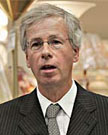 Some from the West may think that a new Kennedy-Dion Liberal Party would be just yet another example of the old English and French dualism of the central provinces of Ontario and Quebec being inappropriately foisted on the rest of Canada. Others will remember that more than one out of every five Canadians is still from Quebec – and that French and English have been constitutionally mandated official languages of the federal Parliament since it began in 1867.
Some from the West may think that a new Kennedy-Dion Liberal Party would be just yet another example of the old English and French dualism of the central provinces of Ontario and Quebec being inappropriately foisted on the rest of Canada. Others will remember that more than one out of every five Canadians is still from Quebec – and that French and English have been constitutionally mandated official languages of the federal Parliament since it began in 1867.
Still more to the point, it is the not-really-very-bilingual Kennedy from the Canada-wide anglophone majority who would be prime minister on the Kennedy-Dion scenario. (There is no doubt a Dion-Kennedy scenario too. Yet, again, it finally bumps into the awkward fact that someone from Quebec has already been prime minister of Canada for at the very least 34 or 35 of the last 38 years.)
Kennedy has 27.3% of committed first-ballot delegates from Alberta for December 2 – tied for first place in that booming new Western province with Michael Ignatieff. (Stephane Dion himself stands next to Kennedy and Ignatieff in Alberta delegate support, quite a way ahead of Bob Rae.)
Gerard Kennedy may have been an Ontario provincial cabinet minister, but he does come from Manitoba. He did start his first food bank in Alberta. And, though the BC results are currently being fine-tuned on the Liberal Party website, based on earlier appearances Kennedy is second to Bob Rae in committed delegates from Canada’s third most populous province – and Kennedy and Dion together have close to 40% of BC’s first-ballot votes.
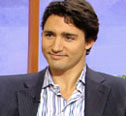 Finally, for those Liberals in all parts of Canada today who still hanker after something like the age of Pierre Trudeau, his eldest son Justin Trudeau (a.k.a. Mr. Sophie Gregoire) has recently opined on the current Liberal leadership race to the press in Montreal.
Finally, for those Liberals in all parts of Canada today who still hanker after something like the age of Pierre Trudeau, his eldest son Justin Trudeau (a.k.a. Mr. Sophie Gregoire) has recently opined on the current Liberal leadership race to the press in Montreal.
Justin Trudeau’s “warmest praise was reserved for a candidate who garnered the least support in Quebec among the four leading candidates. While former Ontario education minister Gerard Kennedy is third in terms of declared delegates across the country, he garnered only one per cent of the vote in Quebec … However, Trudeau, who is wavering between Kennedy and former Liberal cabinet minister Stephane Dion, whom he praised for his wisdom and his understanding of the need for renewal, said Quebecers should take a closer look at Kennedy, a man he said had a clear and new vision.”
8. Putting your money where your mouth is still gets you Bob Rae?
 Mackenzie King’s and Ernest Lapointe’s old Liberal Party of Canada alliance, between the two world wars, was itself based on a much longer tradition in Canadian political history.
Mackenzie King’s and Ernest Lapointe’s old Liberal Party of Canada alliance, between the two world wars, was itself based on a much longer tradition in Canadian political history.
(You could even trace it all the way back to the fabled Rebellions of 1837 – led by Mackenzie King’s grandfather, William Lyon Mackenzie, in old Upper Canada or present-day Ontario, and by Louis Joseph Papineau in old Lower Canada, or present-day Quebec. And then, 100 years later, there was the volunteer Mackenzie-Papineau Brigade, that fought in the Spanish Civil War of the late 1930s, along with the Lincoln Brigade and George Orwell and all that.)
There is also something quite striking about the notion of contemporary Canadian political leadership recently suggested by Gerard Kennedy’s Ontario campaign chair Mark Holland: “There’s a franco-anglo alliance that goes back a very, very long way … that I think has worked well. Certainly, we [the Kennedy and Dion camps] see each other building on one another’s strengths in complementing each other well. Utilizing that franco-anglo alliance and given the fact that Gerard is not looking for, to be a team leader, he’s looking to share his leadership with members and with others and so that would be a natural fit.”
 You could even argue that an ultimate Kennedy-Dion victory in Montreal on December 2 or 3 would be one tidy way of addressing the strife inside the Liberal Party of Canada, that is said to have been induced by Michael Ignatieff’s controversial proposal to somehow recognize Quebec as some kind of “nation within Canada.”
You could even argue that an ultimate Kennedy-Dion victory in Montreal on December 2 or 3 would be one tidy way of addressing the strife inside the Liberal Party of Canada, that is said to have been induced by Michael Ignatieff’s controversial proposal to somehow recognize Quebec as some kind of “nation within Canada.”
It is no doubt one of the strengths of both Canada and the Liberal Party of Canada today that some present-day Canadian politicians are aware of the possibilities that still lie latent in their very deep institutional history, and are even ready to try to apply its lessons to the more immediate problems of the present. (Especially when that also seems to help advance the ambitions of present-day politicians, of course.)
Yet it is also probably still one of the weaknesses of both Canada and the Liberal Party of Canada today that even though such enchanting and benign visions of a better future arise often enough, they are still only very rarely acted on in the very end. (Though it is true that Pierre Trudeau did actually get elected federal Liberal leader in 1968, over several eminently more boring alternatives.)
Gerard Kennedy no doubt remains less of a known safe quantity than Bob Rae – and for that matter so does Stephane Dion (who was, e.g., a Quebec sovereigntist in his youth). To be altogether attractive in 2006, the old franco-anglo alliance probably ought to somehow embrace clearer allies from the West and Atlantic Canada too. Kennedy ought to show that he will be sharing his new style of leadership with various others from all parts of the country.
On these kinds of calculations, a serious betting person may finally keep their money on Bob Rae. And Bob Rae as Liberal leader may finally help the party make its next big contribution to the story of Canada, one way or another. Along with a lot of potential – and maybe a somewhat more positive frame of mind, there are still a lot of different problems in Canada and Canadian federal politics these days, that are not going to be solved overnight, regardless of who is leading any political party, with whatever exact style and design.
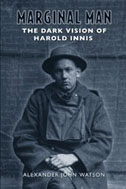 But the counterweights editors will be watching very closely on Saturday, December 2 – just in case Canada’s old natural governing party does finally do something really interesting, and elect some fresh new Kennedy-Dion leadership, that will open still more doors to various forms of much-needed change and forward development (as risky as that may or may not ultimately prove to be, in all of the country today, from the Atlantic to the Arctic to the Pacific seas).
But the counterweights editors will be watching very closely on Saturday, December 2 – just in case Canada’s old natural governing party does finally do something really interesting, and elect some fresh new Kennedy-Dion leadership, that will open still more doors to various forms of much-needed change and forward development (as risky as that may or may not ultimately prove to be, in all of the country today, from the Atlantic to the Arctic to the Pacific seas).
Meanwhile, three cheers for the four candidates who don’t have any serious chance at the ultimate crown of thorns (unless things get very interesting indeed) – Joe Volpe (with 4.9% of committed first-ballot delegates), Ken Dryden (4.3%), Scott Brison (3.5%), and Martha Hall Findlay (0.9%). They have made the race more diverse and enlightening for everyone who has been paying any kind of attention. And it is their actions that will form the essential overture to everything else on December 2.
And then of course may the best man, or men, win, maybe. And if not … again, it probably doesn’t finally matter anyway. One way or another, the historic Liberal Party of Canada will just carry on.
That, it now seems clear enough, is one thing that all of Stephen Harper, Jack Layton, Gilles Duceppe, and Elizabeth May can count on, for any immediately foreseeable future at least.

